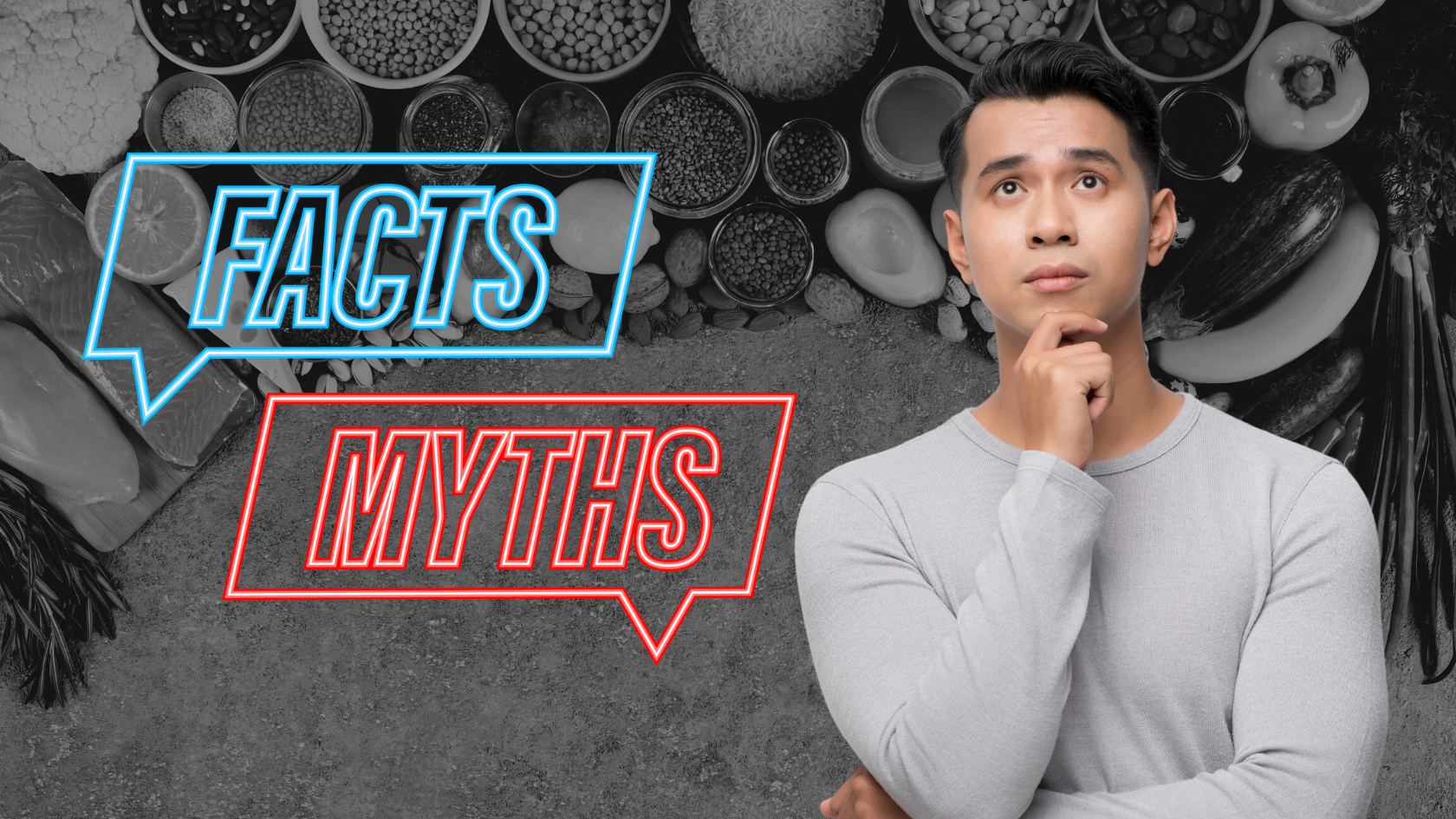
04 Jul Nutrition Myths You Should Know About
Nutrition is a key component of one’s health. It can improve or make conditions worse.
Better nutrition can help boost the immune system, help in the development of children, and infants, and allows women to have safer pregnancy and childbirth. In addition, it can lower the risk of heart disease and diabetes.
The World Health Organization noted that maintaining a healthy diet includes a reduced amount of sugar and fat intake while including fruits and vegetables in every meal.
For sugar, the recommended consumption is equivalent to 50 grams for a person of healthy body weight eating around 2,000 calories per day.
To see additional health benefits, the sugar intake should be less than 5% of total energy intake.
Due to the rise of nutrition trends, there have been several misconceptions that came along. Here are some of the nutritional misbeliefs that should be debunked.
1. Shedding Calories Equates to Weight Loss
Although the concept of calorie deficit when it comes to weight loss can be true, it does not work the same way for some people. There are other factors to consider about weight loss, including the person’s genetics, body type, and health conditions.
People with health conditions such as hypothyroidism, hormonal imbalances, and metabolic adaptations can have a challenging time losing weight.
In addition, following the “calories in, calories out” concept puts more importance on the calorie value of foods and not their nutritional value.
[/et_pb_text][et_pb_image src=”https://icare.com.ph/wp-content/uploads/2023/07/nutrition.png” title_text=”nutrition” _builder_version=”4.7.7″ _module_preset=”default”][/et_pb_image][et_pb_text _builder_version=”4.7.7″ _module_preset=”default”]
2. Full-fat Products Can Cause Weight Gain
Not all fats are created the same. Fats are categorized as trans fats, monounsaturated, polyunsaturated, and saturated fats.
Good examples of monosaturated fats include olive oil, peanut oil, canola oil, avocado, and nuts. Meanwhile, polyunsaturated fats are corn oil, sunflower oil, and safflower oil. Polyunsaturated fats are also known as “essential fats,” which are essential for inflammation, , muscle movement, and blood clotting. They also build cell membranes and cover nerve cells
On the other hand, experts recommend the limitation of saturated fat intake, which are commonly found in red meat, whole-milk dairy foods, and coconut milk.
Trans fats or known as “the bad fat” are banned in some countries due to several adverse effects on people’s health. It can contribute to insulin resistance and increases the risk of type 2 diabetes.
[/et_pb_text][et_pb_image src=”https://icare.com.ph/wp-content/uploads/2023/07/nutrition-1.png” title_text=”nutrition (1)” _builder_version=”4.7.7″ _module_preset=”default”][/et_pb_image][et_pb_text _builder_version=”4.7.7″ _module_preset=”default”]
3. Certain Foods Can Burn Fat
Grapefruit, cayenne pepper, and vinegar are just examples of foods touted as fat burners. However, no food can burn fat alone, without a proper diet and exercise.
Focusing on one food alone can be restrictive and unsustainable when imposed long-term. It also lacks the kind of nutrition the body needs.
[/et_pb_text][et_pb_image src=”https://icare.com.ph/wp-content/uploads/2023/07/nutrition-2.png” title_text=”nutrition (2)” _builder_version=”4.7.7″ _module_preset=”default”][/et_pb_image][et_pb_text _builder_version=”4.7.7″ _module_preset=”default”]
4. Detox Diets
Detox diets have no data in medical literature. The weight loss that resulted from this kind of diet was brought by a fluid loss related to extremely low carbohydrate intake, diarrhea due to bowel movements, and laxative tea.
It can even impose risks as it lacks fatty acids, protein, and other essential nutrients. In addition, it can disrupt the normal intestinal flora microorganisms, which are responsible for digestive health.
[/et_pb_text][et_pb_image src=”https://icare.com.ph/wp-content/uploads/2023/07/nutrition-3.png” title_text=”nutrition (3)” _builder_version=”4.7.7″ _module_preset=”default”][/et_pb_image][et_pb_text _builder_version=”4.7.7″ _module_preset=”default”]
5. Carbs Are Fattening
Carbohydrates are one of the main building blocks that make up all food. It is the primary source of energy and the brain’s preferred energy source.
In addition, it also builds macromolecules while storing energy and spares protein and fat for other uses.
Consuming carbohydrates is also one way to prevent starvation-related loss of muscle mass.
However, excessive consumption of carbohydrates such as added sugars and refined grains can be harmful to your heart health, cause weight gain and increase your chances of getting diabetes.
SOURCE:
https://www.healthline.com/nutrition/biggest-lies-of-nutrition#20.-Carbs-make-you-gain-weight
https://www.who.int/news-room/fact-sheets/detail/healthy-diet
https://www.health.harvard.edu/staying-healthy/the-truth-about-fats-bad-and-good



